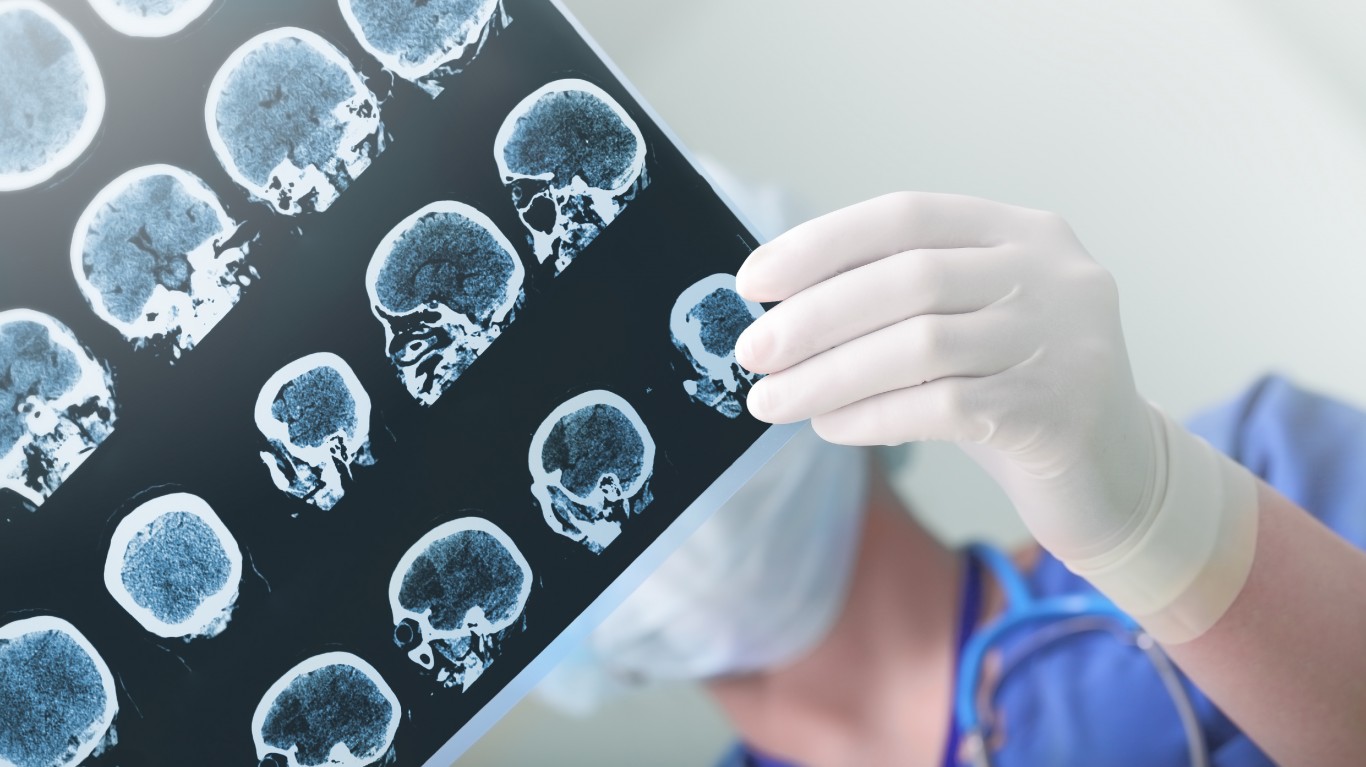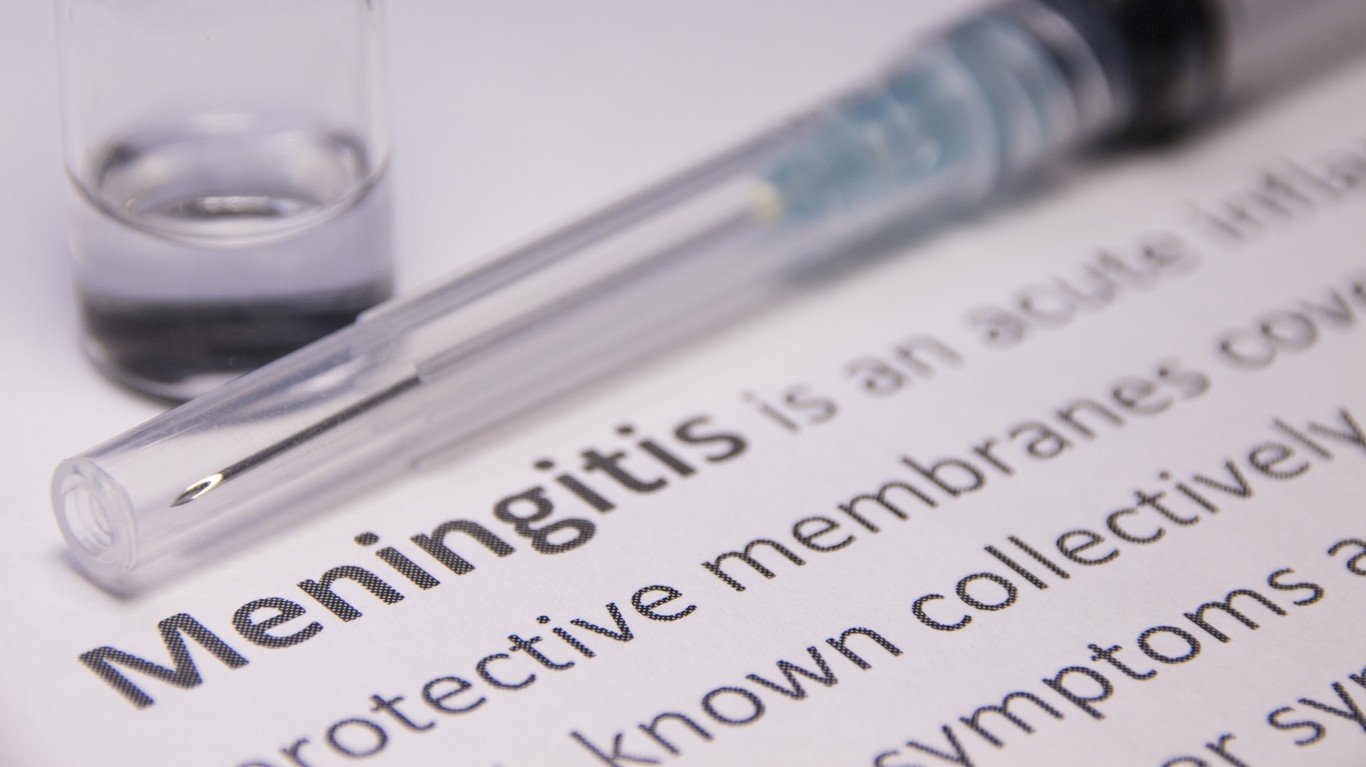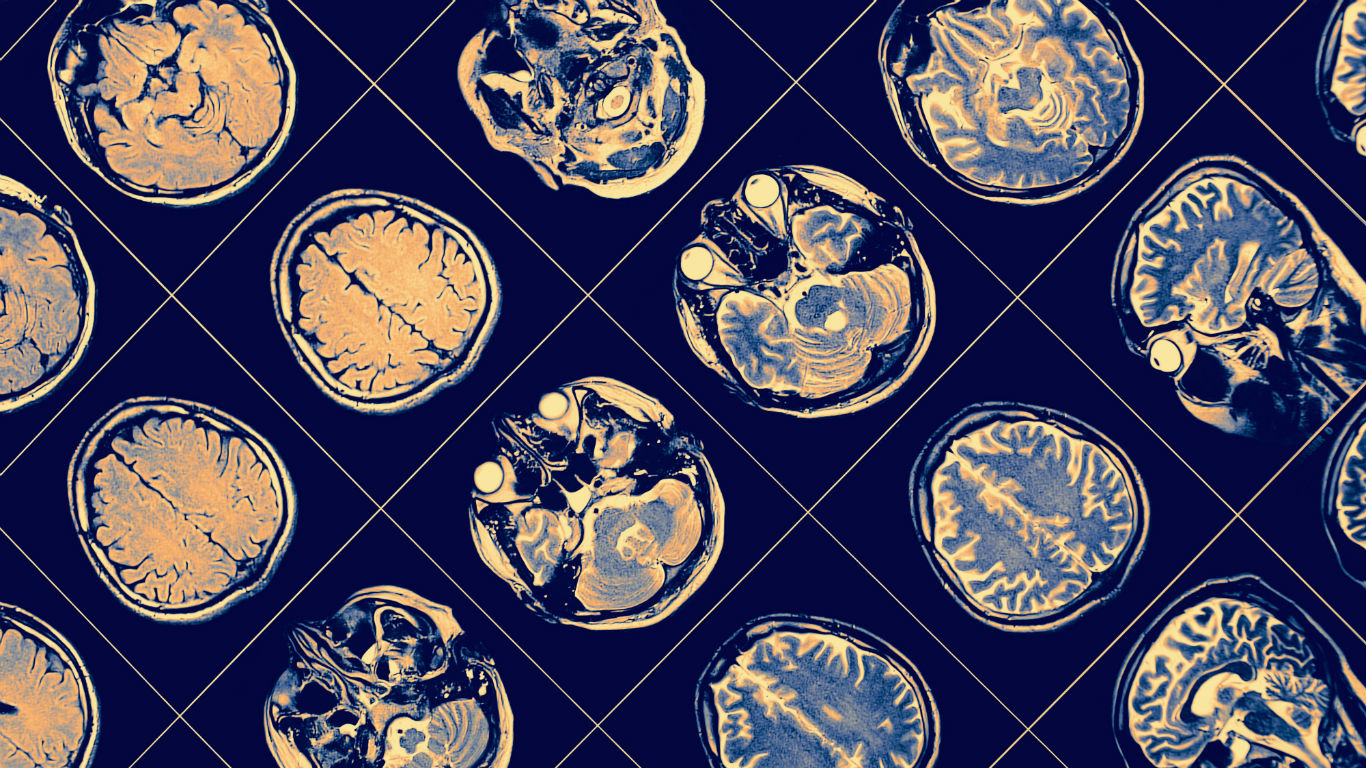

Brain fog, memory loss, difficulty concentrating, and other dementia-like symptoms can be caused by several diseases. Sure, sometimes the real reason behind dead brain cells and loss of gray matter is Alzheimer’s. But sometimes, memory loss is the result of a treatable disease or condition, a nutritional deficiency, an unhealthy habit, or another reversible issue.
To identify the factors that contribute to memory loss and brain shrinkage, 24/7 consulted a neurologists and reviewed information published on sites of organizations specializing in brain health such as the Alzheimer’s Association.
Brain atrophy, which means the loss of neurons and the connections between them, occurs naturally, albeit slowly, as we age. Many of the factors that can reduce the risk of brain shrinkage and memory problems, are modifiable, according to Dr. Glen Finney, neurologist at Geisinger Health System in Pennsylvania and New Jersey.
Staying active and eating a balanced diet can lead to reduced risk of multiple conditions that can affect brain function. Protecting your head from injury is also important. Another very important factor is restful sleep. Reduced brain function is just one of at least 21 damages you do to your body when you don’t get enough sleep.
Some of the conditions on the list also increase the risk of Alzheimer’s, a degenerative and progressive neurological disease with no known cure and the sixth leading cause of death in the United States. And these are the states where Alzheimer’s is soaring.
To identify what — other than age — can cause memory loss and brain atrophy, 24/7 Tempo consulted a neurologist who specializes in disorders of memory, thinking, and cognition, and reviewed numerous academic studies on what affects cognitive function and the structure of the brain.
Click here to read about stress and other things that can lead to memory loss and brain shrinkage

1. Stress
How exactly stress affects the brain is still an evolving science, Finney explained. “Chronic stress creates a number of biochemical changes in the body, including increasing cortisol levels, which can lead to a cascade of increase in other chemicals that can trigger cell death,” he said. Psychological stress overtime can kill brain cells, Finney added. Research has shown that chronic stress may reduce brain size and cause impaired memory in middle-aged adults.
[in-text-ad]

2. Homocysteine
Homocysteine is an amino acid that studies have pegged as a “co-factor in memory loss,” according to Finney. A simple blood test can show homocysteine’s levels in the blood. “Doctors regularly screen for it in people presenting memory problems,” Finney said. The good news is that the amino acid’s levels can be easily treated with supplements and/or simple diet changes (less meat), he noted. Homocysteine can be a risk factor for vascular disease, which is the second biggest cause of dementia in the U.S. This is because of impaired blood and oxygen flow to the brain, Finney explained.

3. Diabetes
Diabetes is the most common illness associated with generalized brain atrophy, according to Finney. Generalized brain atrophy is when the entire brain has shrunk as opposed to parts of it (focal atrophy). If the condition remains uncontrolled, it becomes a major risk factor for developing Alzheimer’s and vascular dementia, he noted. Chronically high glucose levels in the blood can damage many organs in the body, including the brain, he explained. Too much sugar can impair functional connectivity (how brain regions are linked) and brain matter, leading to shrinkage, according to Harvard Medical School.

4. High blood pressure
“Blood pressure is becoming a very important target for protecting brain health,” Finney said. This is one reason the high blood pressure standard level, which is recommended as healthy, has been lowered, he noted. The new definition of hypertension, according to the American Heart Association and the American College of Cardiology, is blood pressure higher than 130 over 80. It used to be 140 over 90 until 2017. Narrower blood vessels and blockage of the arteries as a result of high blood pressure can impair blood and oxygen flow to the brain, which, in the long-term, can lead to mild cognitive impairment and dementia.
[in-text-ad-2]

5. Tobacco
“Anything that reduces oxygen to the brain can lead to brain shrinkage,” Finney said. When inhaled, tobacco, more specifically nicotine, has many damaging properties. It is toxic to neuron cells, Finney added. It can lead to increased oxidative stress and cell death. Smoking is a huge risk factor for vascular disease and abnormal condition of the blood vessels, which have been linked to brain damage and a decline in thinking skills.

6. Obesity
“It’s not 100% clear how obesity affects brain health,” Finney said. It can be because it can lead to many conditions and diseases such as diabetes and high blood pressure, both of which can hurt the brain, he noted. “But the direct effect is not fully known.” Indirectly or not, obesity may accelerate the onset of neurocognitive impairments in adulthood, according to research. Children are also at risk. Extra weight in kids has been linked to problems with executive function, bad memory, attention, mental flexibility, and decision-making.
[in-text-ad]

7. Brain injury
The link between brain injury and brain atrophy is an emerging field, Finney said. People are generally more aware of the subconcussive head impacts that over decades put one at risk of chronic traumatic encephalopathy (CTE).Gaining attention thanks to the many athletes affected — mainly boxers and football players — CTE is a brain condition linked to repeated blows to the head. Even one serious brain injury can increase the risk of Lewy body dementia, one of the most common types of progressive dementia in the United States, he added. Abnormal deposits of a certain protein build up in parts of the brain that are responsible for behavior, cognition, and movement.

8. Vitamin B deficiency
“We know that Vitamin B12 is important for many functions in the brain,” Finney said. Even mild deficiency — levels below 400 mg in the blood — can cause memory loss, he noted. “Megadosing will not help either.” Vitamin B1, also known as thiamin, plays a key role in nerve function, among others, and affects the memory. “Very low levels can cause serious brain disease, even though this happens rarely, but lower than normal levels — between 74 and 222 nanmoles per liter — can worsen memory loss, Finney added.

9. Excessive drinking
“Alcohol has a complicated relationship with the brain,” Finney said. While consumed in low amounts — such as one glass of wine a day — it can reduce the risk of dementia, having two or more drinks can lead to loss of all the health benefits that may come with alcohol, he noted. “The good news is that drinking too much is a reversible cause of brain shrinkage, if you stop early enough.” But excessive drinking for a long period of time can lead to permanent damage to the structure and function of the brain, significantly increasing the risk of alcohol-related dementia and brain damage.
[in-text-ad-2]

10. Sleep deprivation
Lack of sleep can cause mild memory problems that can be reversed once proper sleep has been restored, Finney said. The theory is that “[d]uring good sleep the brain clears a protein that can accumulate in the brain and increase the risk of Alzheimer’s.” This is currently an area of active research, he noted. Some studies have suggested that sleep helps the brain get rid of the protein, called beta-amyloid, found between neurons. A buildup of this metabolic waste product has been linked to impaired brain function.

11. Dysfunctional thyroid
The thyroid is very important for most body functions, according to Finney. “When it’s underactive, you’re tired, slow, and can’t think; when it’s overactive, you feel on edge, distracted, and can’t concentrate.” Hypothyroidism, when not enough thyroid hormone is being produced, is very common among women, especially those between 35 and 65, according to Harvard Medical School. Some studies have shown that an underactive thyroid can lead to memory loss and can also affect verbal memory.
[in-text-ad]

12. Depression
“Midlife depression has been known to be a modifiable risk factor for dementia,” Finney said. Symptoms of dementia can very often be confused for symptoms of depression. This is why it’s important to check for memory problems and treat them in people who have been diagnosed with depression, he noted. Recent research published in the Journal of Neural Transmission has suggested that people who have experienced depressive episodes may also exhibit gray matter reductions in certain areas of the brain.

13. Certain infections
Chronic meningitis, a slowly developing meningitis that can be caused by many infections and last several weeks, has been known to cause memory problems, according to Finney. It’s also possible for fungal infections to lead to brain atrophy. If there is permanent damage to the brain from any infection, patients will eventually see brain shrinkage, he noted. AIDS and encephalitis (inflammation of the brain usually because of an infection) can also lead to cognitive impairment.

14. Some medications
Medications often come with side effects even though not every patient experiences them. Two groups of meds â benzodiazepines, used to treat anxiety and sleeping problems, and anticholinergics, taken for allergies, depression, and hypertension — are associated with a higher risk of dementia if taken for months, according to studies reviewed by the Harvard Medical School. Both types of drugs affect neurotransmitters’ function, sometimes slowing them and other times activating them. In general, medications that depress signaling in the central nervous system can cause memory loss.
[in-text-ad-2]

15. Stroke
A stroke happens when the blood flow to the brain is interrupted. Stroke can cause cerebral atrophy, according to the National Institute of Neurological Disorders and Stroke. If parts of the brain don’t get oxygen, neurons in that area die, leading to shrinkage. Functions that are controlled by the damaged areas, whether they include speech, movement, and memory, may be affected as well.

16. High cholesterol
Some research has linked high levels of LDL, or “bad” cholesterol, with a buildup of amyloid plaques in the brain. This accumulation can destroy connections between brain cells. The brain depends on cholesterol. So much so that a quarter of the cholesterol in the body is found in the small organ. Its role is to surround the nerve cells and protect the electrical impulses that regulate thought, movement, and sensation possible.
[in-text-ad]

17. Shrinkage of the hippocampus
Gray matter in the left part of the hippocampus has been found to correlate with the performance in memory and language tasks. The small, horseshoe-shaped organ is important for consolidating information from short-term to long-term memory. Damage to the organ makes forming and storing new memories difficult.
Essential Tips for Investing: Sponsored
A financial advisor can help you understand the advantages and disadvantages of investment properties. Finding a qualified financial advisor doesn’t have to be hard. SmartAsset’s free tool matches you with up to three financial advisors who serve your area, and you can interview your advisor matches at no cost to decide which one is right for you. If you’re ready to find an advisor who can help you achieve your financial goals, get started now.
Investing in real estate can diversify your portfolio. But expanding your horizons may add additional costs. If you’re an investor looking to minimize expenses, consider checking out online brokerages. They often offer low investment fees, helping you maximize your profit.
Thank you for reading! Have some feedback for us?
Contact the 24/7 Wall St. editorial team.
 24/7 Wall St.
24/7 Wall St. 24/7 Wall St.
24/7 Wall St.


